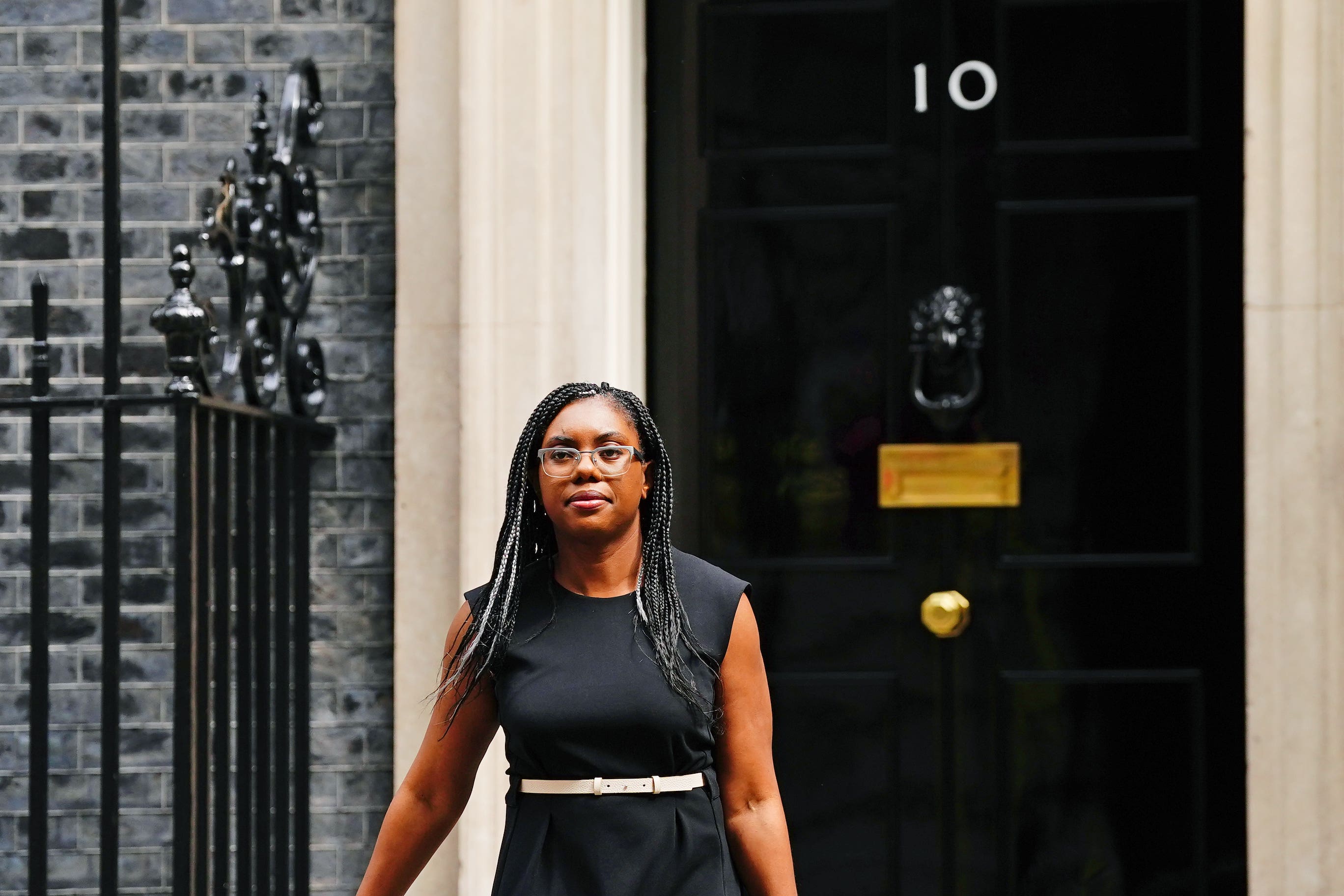Parts of Australia and US removed from UK gender recognition certificate list
Additions to the updated list include China, Cuba, India, Iran, Sri Lanka and Belarus.

Some Australian and US states as well as Canadian provinces have been removed from the UK’s approved list for gender recognition certificates, while China and Iran have been added.
People coming to the UK from places no longer on the list will have to provide medical reports in order to get such a certificate once new rules come into effect.
Some countries and territories on the previously approved list have made changes to their systems which mean they are not considered to have “similarly rigorous” systems as those in the UK, Kemi Badenoch told Parliament.
The list had been “long overdue” an update, having last been refreshed in 2011, the women and equalities minister told the Commons.
It should not be possible for a person who does not satisfy the criteria for UK legal gender recognition to use the overseas routes to do so
While Ms Badenoch did not announce which countries were being added or removed, a draft order laid before Parliament on Wednesday afternoon showed that New York City and South Australia are among the places stripped from the list.
The Australian states of Victoria and Tasmania have also been removed, alongside the Canadian provinces of Alberta and British Columbia.
New Zealand, Mexico, Spain, Norway and Switzerland are among the countries removed.
The US states of California, New Jersey, New York, Florida and Colorado have all been left off the new list.
Additions to the updated list include China, Cuba, India, Iran, Sri Lanka and Belarus.
Ms Badenoch said the changes were being made for fairness and that people coming from overseas must satisfy the criteria for UK legal gender recognition.
Currently, someone can apply for a gender recognition certificate (GRC) if they are 18 or over, have been diagnosed with gender dysphoria in the UK, have been living in their affirmed gender for at least two years, and intend to live in this gender for the rest of their life.
If someone has had their gender previously recognised in one of the countries or territories on the approved list, they do not need to provide medical reports when applying for gender recognition in the UK.
I note for example that China is now on the approved list but not our four closest Five Eyes allies
Ms Badenoch told MPs: “Inadvertently allowing self-ID for obtaining GRCs is not Government policy. It should not be possible for a person who does not satisfy the criteria for UK legal gender recognition to use the overseas routes to do so.
“We also need to ensure parity with UK applicants. It would not be fair for the overseas routes to be based on less rigorous evidential requirements. This would damage the integrity and credibility of the process in the Gender Recognition Act.”
Her Labour counterpart Anneliese Dodds questioned whether changes to the list of recognised countries would have any diplomatic impact for the UK.
The shadow equalities minister said: “I note for example that China is now on the approved list but not our four closest Five Eyes allies.”
Ms Badenoch responded: “This is not about virtue signalling which countries we like or which countries we don’t like, far from it.
“This is about whether another country’s system meets our guidelines.”
The minister went on to explain the inclusion of Kazakhstan on the approved list – where she said people must undergo forced sterilisation, which she condemned, as part of gender reassignment surgery in order to obtain gender recognition.
Ms Badenoch said: “Recognising certification for someone who has undergone that is a compassionate acknowledgment of what some transgender people in other countries have had to go through in order to obtain their certification.”
We should not leave ordinary people to suffer unintended consequences because we in Parliament are shy of dealing with difficult issues
More broadly, Ms Badenoch said she is working to provide “legal certainty” in an effort to “reduce the tensions that have emerged as a result of the confusion around the terms sex and gender” in the UK.
She said the Government wants to ensure it takes an “evidence-led” approach, giving the example of using the final report of the Cass Review to fully inform issues around the treatment of children on the NHS.
That review, led by Dr Hilary Cass, was commissioned in September 2020 into the approach and capacity of the London-based Gender Identity Development Service (Gids) clinic, which is due to close in spring next year to be replaced by regional clinics.
The Cass Review’s final report had been expected by the end of this year but, Ms Badenoch said, is “taking longer than originally expected” because of the “complexity” of the area, and is now due in early 2024.
The minister added that the Government wants to ensure “consistency in how we implement policy across the board”, and to look into whether there is a need for more clarity in law.
She told the Commons: “For example, the Equality and Human Rights Commission has recommended that we clarify the definition of sex in the Equality Act, while ensuring that any further legislation that is proposed fully takes into account the complexity of issues.
“We should not leave ordinary people to suffer unintended consequences because we in Parliament are shy of dealing with difficult issues.”